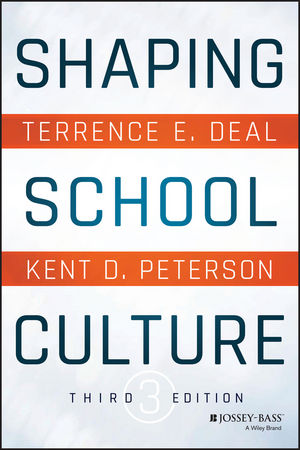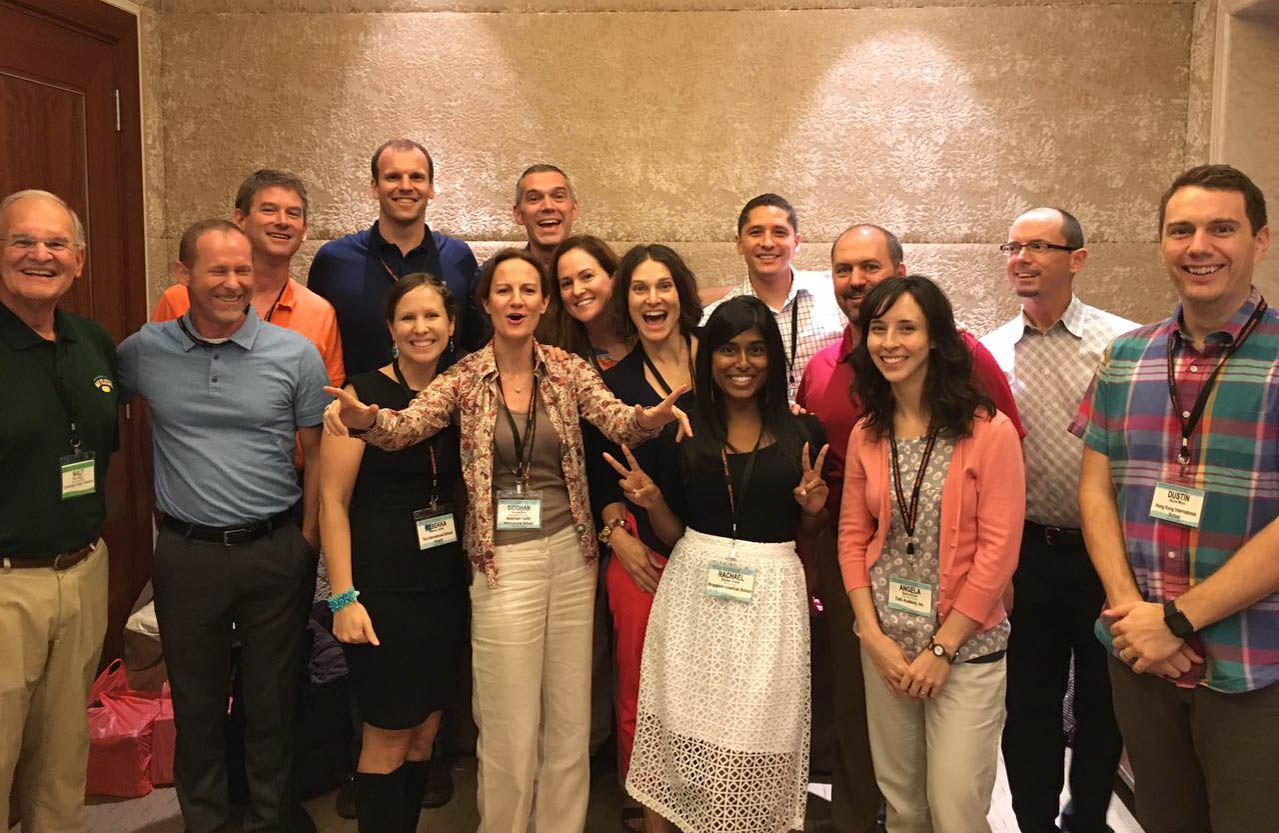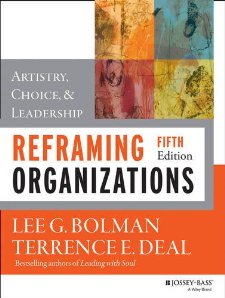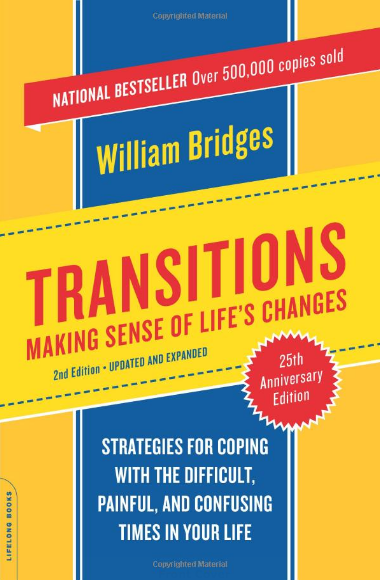The article provided involves a discussion of how language is acquired, discussing the nativist vs. behaviorist viewpoints. On the one hand nativist theories related to language acquisition claim that language is instantaneous once a ‘language acquisition device’ is accessed. Behaviorists on the other hand argue that nurture is a big part of language acquisition. Regardless of which side of the fence you may reside in regards to this discussion, it is important to stay as informed as possible when it comes to language acquisition as we are all language teachers to some extent, particularly in international schools, regardless of our subject matter. For aspiring leaders and those in school leadership positions cultivation of the ability to relate to language teachers/learners on their journeys and provide them hope with authentic and timely assessments is a big-picture goal.
Category: Uncategorized
Shaping School Culture
The ability to shape and mold the culture of a school is an extremely important skill for any educational leader to hone. And it is not easy!
Luckily, there are experts that can help aspiring school leaders understand best practices when it comes to shaping school culture.
Terrence E. Deal and Kent D. Petersen have written a ‘go to guide for leadership’, that should be within arms reach on every school leaders bookshelf.

Triple Bottom Line Theory was developed originally for businesses. It has been adapted for international educators in the article below. The idea is that as leaders we need to be aware of multiple bottom lines in order for our school’s to be successful.
The three bottom lines are:
- Fiscal: this is a very measurable and important bottom line for schools and requires a strong background in budgeting/finance.
- Academic: this is also a very measurable bottom line and requires identification of what academic outcomes are important for you to measure at your respective school.
- Intangible Core: this is a difficult bottom line to measure as it relates to qualitative data connected to values and dispositions.
Simultaneously incorporating three bottom lines requires systems thinking on the part of educational leaders. This systems thinking in combination with the use of the data cycle can lead to the ultimate goal for educational leaders: improved educational outcomes for students.
Link to scholarly article explaining Triple Bottom Line theory for international educators
The Ride to Principal Certification

The start of a new semester brings another set of classes, books to read, and discussion posts to compose. Those involved in the early stages of this blog all have the same vision: to gather enough experience, expertise, and strategies to become a respected and trusted educational leader in the international school world. Having this shared mindset has allowed for inspiring conversations with our colleagues in the International School Leadership Program (ISLP). We are all working in international schools in the EARCOS region in Southeast Asia, some of us even having administrative positions already. We are constantly learning from each other and sharing our experiences (especially learning experiences) with each other for the benefit of learning and growing.
Personally, I have found myself even more motivated to become a school principal than when I started the program. I enjoy surrounding myself around passionate educators who students look up to as exemplary role models. Education opens so many doors; it liberates minds and urges creativity! Students who have a positive relationship with any stakeholders at a school are more likely to value education and its lasting effects. This is the type of atmosphere I want to be exhibited in the school I end up working for. Respect, collaboration, goals, trust, high self-esteem……all words that I want others to describe my school. Everything that we do in these principal certification classes will tie into this big picture. We will learn new collaboration methods, how to successfully manage school budgets, design curriculum plans and goals, acquire lasting human resources skills, and build positive relationships with other administrators.
My hope is that this blog will eventually attract other teachers and administrators looking to do the same. This blog can turn into a forum of shared experiences, tips and suggestions, and new ideas that we all can use to make our schools a more vibrant and nurturing place to work and learn!
Have you ever wondered if there is a blueprint for how to be a successful international school leader? Some international school leaders assume leadership positions without formal training, some study administration before becoming international school leaders. And others are a mix of column A and B, assuming leadership roles in international school while at the same time taking graduate level classes in leadership.
Regardless of your leadership path, Bolman & Deal provide a blueprint for the four frames of organizational leadership: Structural, Human Resources, Political and Symbolic, spelling out how to incorporate all four frames into your leadership position.


This Fall 2016 semester as Activities Coordinator I have been involved with the implementation of a more student-driven after school program based on polling of student interests. One area of high interest for students at my school is LEGO Robotics. After interviewing a very experienced LEGO Robotics teacher, we hired him and today from 345-500 pm will be his 7th class.
What is the impact? So far, students report excitement and joy related to STEM activities and say they are never bored. They have so far learned how to program LEGO mindstorm robots to go straight, turn left and right, and simulate a soccer game. Here is a link to: Scholarly article related to STEM after school programs and success in traditional classrooms.
Data for school leaders
As an educational leader do you ever feel as if your school is in dire need of improvement? For many, if not all educational leaders, the answer to this question is a resounding yes. This begs the question, how do we, as educational leaders get unstuck and start moving toward meaningful schoolwide improvements. The answer according to this text book is through the use of data.
Victoria Bernhardt’s seminal text is ‘a call to action.’ It is ‘about inspiring schools to commit to a framework that will improve teaching for every teacher and learning for every learner.’ How? By instructing readers on how to become ‘data literate’ and use this literacy to ‘transform data into information and then into action’. If this occurs, schools are capable of making a shift away from ‘compliance toward a true commitment to improvement.’

Bernhardt, Victoria 2013. Data Analysis for Continuous School Improvement. An Eye on Education Book. Routledge. For more information about Victoria L. Bernhardt: http://eff.csuchico.edu
All of us know people that we have encountered in our lives that just “have it together.” We are jealous by their constant happiness and ability to adapt rapidly to change. This is the type of person that the book Transitions by William Bridges wants us all to be. As we transition (or prepare to) to an administrative role, we have to first stop and think about this physical and emotional change and how we will be affected.
As Transitions mentions as their Rule #2 (Bridges, 2004, p. 11), every transition begins with an ending. We are finishing our duties and roles as classroom teachers and preparing ourselves for what sometimes seems to be an unknown. How exactly different is the life of an administrator than the life of a teacher. Is it easier/harder? Is it more stressful? Questions abound, but what we also have is desire and motivation. We are taking this next step because we feel we are ready. We read the books, we attend the conferences, we go to the workshops, we are networking….we are ready. Transitions references three distinct phases of every transition: an ending, the transition period, and the beginning. Before a transition period can occur, we must end something. This could be a mindset or just a physical end to something. I feel the transition period is the most important phase. This time period can vary depending on the size of the transition. Some people call this transition time “closure”.
Now, how does this apply to us? What should we leave behind, or put behind us, when we’re in this transition period? One element is the time spent with our students. The reason why I got into education in the first place was to form relationships with my students and watching them grow into mature, responsible citizens. Now I have to leave my classroom and communicate more with teachers? This is a tough transition for me to make. But, I can still affect students as an administrator! Sure, I won’t be physically around them as much, but I can still be a presence in the hallways, by the busses, and in classrooms. I can also influence how teachers interact with their students by working with them to improve their classroom instruction and effectiveness.
This is just one professional transition that we are (or will) encounter. I’m curious as to what other transitions new administrators have had to deal with, and how they maneuvered around them to make them successful transitions.

Bridges, W. (2004). Transitions: Making sense of life’s changes. Cambridge, MA: Da Capo Press.
If you’re looking for an easy self-help style book that will help you in any and a ll areas of your life – look no further. Someone told one of the authors of this book that the book changed their life. They didn’t actually read more than the title, but it changed their life! There is some truth in that idea. This book has a lot of strategies and complex steps you’ll go through before realizing that much of what you’ve read you already knew or knew some of before starting. You’ll probably have a hard time keeping all of those new steps straight, anyhow.
ll areas of your life – look no further. Someone told one of the authors of this book that the book changed their life. They didn’t actually read more than the title, but it changed their life! There is some truth in that idea. This book has a lot of strategies and complex steps you’ll go through before realizing that much of what you’ve read you already knew or knew some of before starting. You’ll probably have a hard time keeping all of those new steps straight, anyhow.
I think there is real value in recognizing that certain conversations carry more weight and have a propensity to get heated. Here are the three ingredients to a Crucial Conversation:
- Stakes are high
- Strong emotions
- Opposing views
Basically, if you’re given the chance, you’ll become argumentative. Now you know. That’s the introduction of the book. The rest of the book explains what to do about it and a lot about why you feel the way you do during an argument. You need to first begin to notice Crucial Conversations in your life and then reflect on your own style of handling them. Here’s the gist of what you need to do next:
As international school leaders it is our responsibility to provide an inclusive and supportive environment for our diverse student populations. Third culture kids (TCK’s) are students that move frequently to different international schools as their parents international jobs change. Some are children of diplomats, some are children of businesswomen/men, some are children of international educators. Because these families and their children move around frequently they can have difficulty forming meaningful relationships which are at the heart of social and academic learning. The article below shares some of the ways we can improve our induction processes of TCK’s at international schools to alleviate the feelings of temporality and promote a sense of community for these students.
Scholarly article related to inclusion of TCK’s (third culture kids)